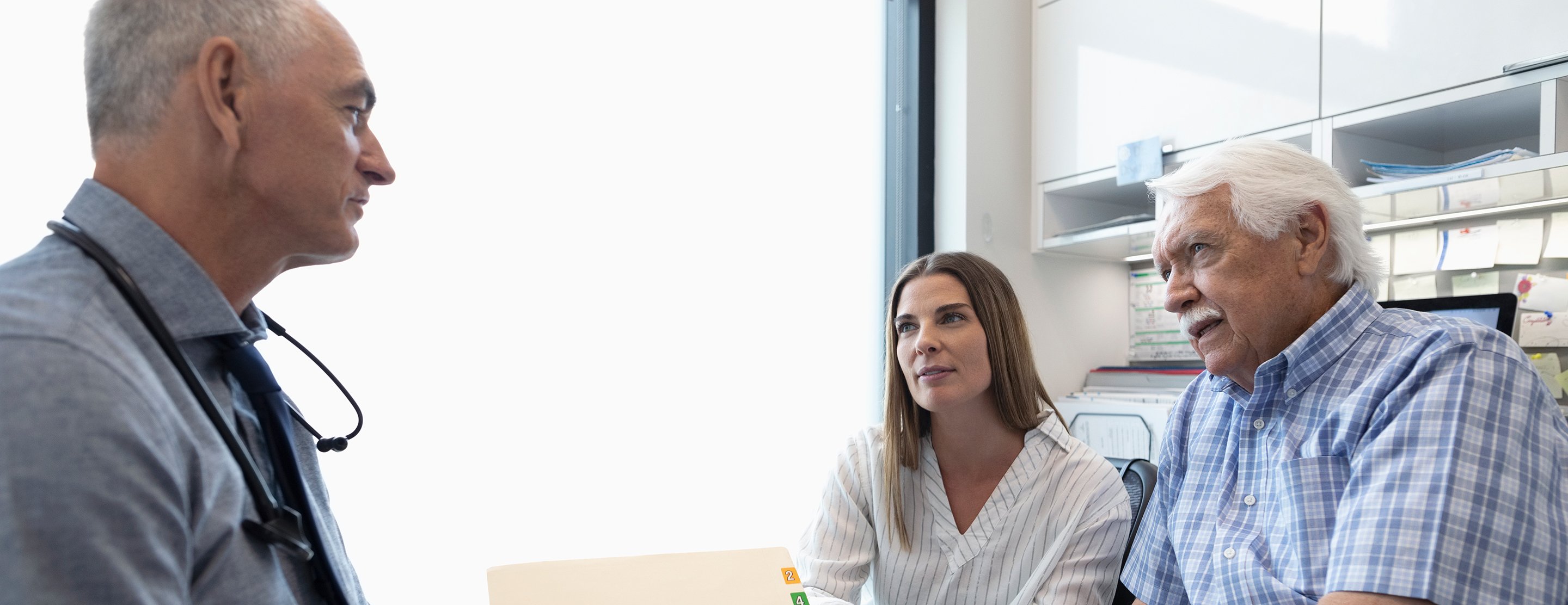
Preparing for Hip Replacement Surgery
If you and your surgeon decide that hip replacement surgery is the best treatment for you, our medical team will give you the information you need to prepare – including personalized instructions, provided at presurgical appointments.
To get started, here are the basics.
Medical preparations
Appointments
Your surgeon's practice assistant will give you a list of your required presurgical appointments. In general, you'll need to do the following before hip replacement surgery:
- During an office visit, set a surgery date with your doctor's practice assistant.
- During an office visit, discuss the risks of surgery with your surgeon.
- If requested by your surgeon, make an appointment with your primary care physician – and any specialists treating you – to obtain preoperative medical clearance.
- Visit our Prepare Clinic two to three weeks before surgery to plan for a smooth procedure and recovery. A practice coordinator from your surgeon's office will schedule an appointment for you.
- Schedule any other required presurgical appointments listed in the letter from your surgeon's practice coordinator.
- Attend the recommended preoperative education class given by the nurse patient navigator. You're welcome to bring family members or a caregiver to this class and a list of any questions you have.
- If you're interested in outpatient physical therapy after your surgery, locate a suitable practice. Many physical therapists are booked weeks in advance, so it's best to find a facility well before surgery and make sure your insurance is accepted there. Let us know your selection, and we'll fax a referral.
Drugs and supplements
- Seven days before surgery: Stop taking all NSAIDs (nonsteroidal anti-inflammatory drugs), such as naproxen (Aleve), ibuprofen (Advil, Motrin) and aspirin. They interfere with blood clotting, which can increase blood loss during surgery.
- If you take blood thinners (anticoagulant medications), the doctor who prescribed them and the Prepare Clinic will determine how long before surgery you should stop. These include clopidogrel (Plavix), enoxaparin (Lovenox), warfarin (Coumadin, Jantoven), apixaban (Eliquis) and dabigatran (Pradaxa).
- Seven days before surgery: Stop taking most supplements. Examples include vitamin E, ginkgo biloba, ginseng, glucosamine and fish oil. You'll review this in detail when you meet with the Prepare clinic before surgery.
- It's fine to take Tylenol (acetaminophen) products or Celebrex (celecoxib) until the day of surgery.
Dental evaluation
Significant dental conditions need to be resolved before surgery. A dental procedure may allow bacteria to enter your bloodstream and cause an infection that could travel to your artificial joint.
Be sure to see your dentist well before the day of your joint replacement surgery. If you'll need dental work within two weeks of your scheduled surgery, let your surgeon know right away.
Home preparations
Planning for your return home after surgery will enable you to be as comfortable as possible during your recovery.
Organizing support
You'll need help caring for yourself when you get home. We recommend having a family member or friend with you 24 hours a day for the first week. Figure out who has the time and ability to help you. If no one is available, please let us know, so a discharge planning nurse can discuss options with you.
Organize friends, family members or neighbors to check on you and to help, if needed. Freezing meals ahead of time and stocking up on prepared foods will mean less work for your caregivers.
Be sure to arrange for a friend or family member to pick you up from the hospital on the day of your discharge. You'll also need someone to take you to follow-up visits.
Preparing your home
Consider buying or borrowing helpful devices such as:
- A raised toilet seat (an attachment that adds height)
- A bathtub or shower chair
- A reacher/grabber tool
- A shoehorn and a sock aid (a device that lets you slip socks on without bending over)
You can find these items at many drugstores and medical supply stores as well as online.
To prevent accidents at home, we recommend:
- Making pathways in crowded areas
- Removing throw rugs
- Securing extension and telephone cords so they're not strung across the floor
- Installing handrails in your bathtub and on stairways
- Placing important items where you can easily reach them
Packing for the hospital
If you have a walker or crutches, bring them to the hospital. If you don't, the hospital will provide them before you're discharged.
Please pack the following:
- Dental care items, deodorant and other toiletries (The hospital has the basics as well.)
- Comfortable, loose-fitting clothes
- A knee-length robe and slip-on shoes
- A cell phone (optional)
- ID (driver's license or passport)
Please do not bring:
- Valuables, such as jewelry, wallets and watches
- Medications (The hospital will provide any that you need.)
The days before surgery
You'll be provided in advance with a special antibacterial soap and instructions for when and how to use it. Take a shower or bath – washing thoroughly with the soap, as instructed – two nights before surgery, the night before surgery and the morning of surgery.
One day before surgery
Our hospital staff will call to notify you of your scheduled admission time. Do not eat or drink anything after midnight. Rest as much as possible, and go to bed early.
The morning of surgery
You may take any usual medications, as instructed by the Prepare Clinic staff, with a small sip of water.
UCSF Health medical specialists have reviewed this information. It is for educational purposes only and is not intended to replace the advice of your doctor or other health care provider. We encourage you to discuss any questions or concerns you may have with your provider.







